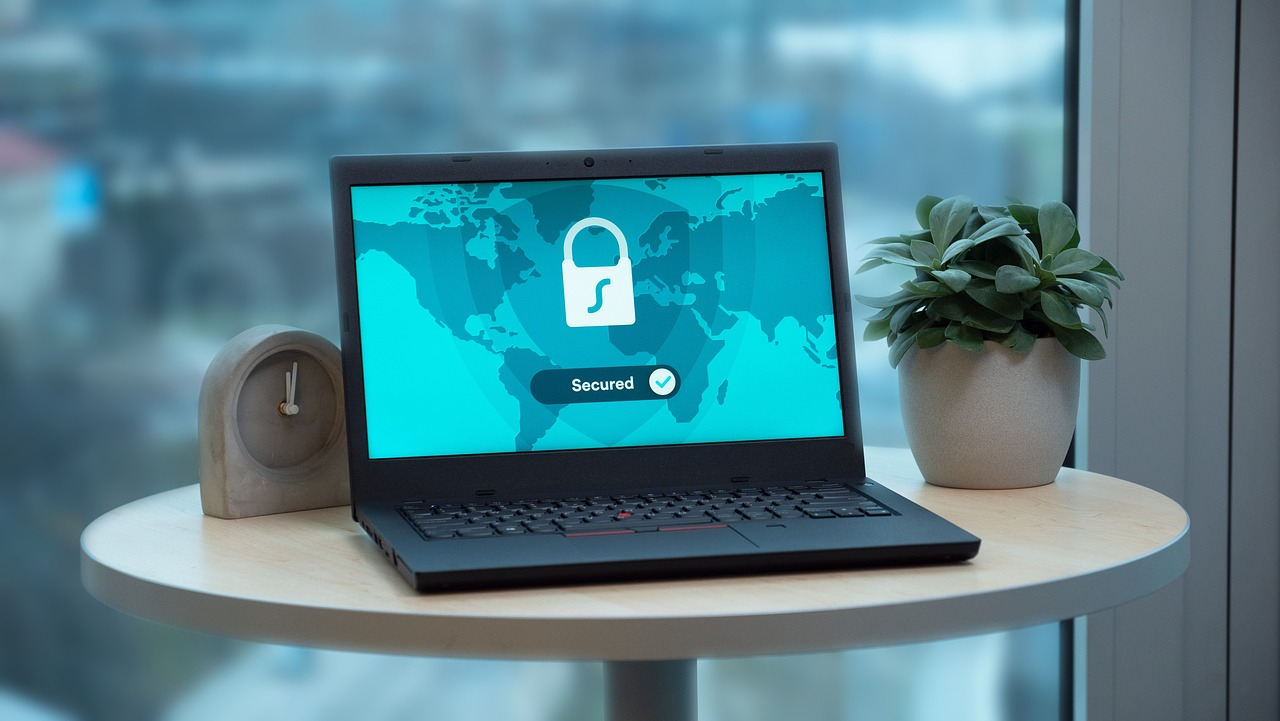These days, more people are working remotely than ever before. Many businesses and companies, regardless of their size, have remote employees who work from various locations. You’ll find more people typing away on their laptops in a nearby cafe or library than in an office setting. This often involves using public networks on personal devices.
This is where internet security comes in. As the internet has become more common all over the global, it’s time to take some preventive measures to ensure your data and devices remain safe at all times. This is why we recommend always using a VPN while working remotely.
But why is that necessary?
Did you know that cybercriminals try to hack a digital device every thirty-nine seconds? And this only accounts for fifty percent of the total cyberattacks! Sounds scary doesn’t it? Every year businesses lose millions of dollars to malware, phishing schemes, and hacking activities. Hackers are looking for new vulnerabilities to exploit you, and working remotely offers them just that!
Most companies are embracing hybrid and remote working models. Thus, workers require convenient and secure access to the Internet while working online. This is how a VPN or virtual private network can help. According to recent research, VPNs have become more of a norm than just a tool, as more than thirty-one percent of people worldwide use VPNs daily.
A VPN is an essential utility for working remotely. It establishes a safe connection between the internet and your digital device. This encrypted tunnel allows you to access sensitive data and information securely. Contrary to popular opinion, a VPN can do a lot more than allow you to browse safely – it can benefit remote workers in many other ways. Continue reading this blog to learn how.
Do you also work remotely? If yes, then you should choose VPNgeniX for all your digital security needs. Our advanced products allow you to browse completely anonymously while you’re working remotely. We are proud to offer some of the fastest VPNs in the world that can help you access restricted content and download unlimited torrents, be it for entertainment purposes or work.
Let’s learn why you should use a VPN for remote work.

Using VPN For Remote Work
Virtual Private Networks (VPNs) enable users to access a remote connection privately. They were initially developed to allow access to remote employees. Thanks to booming technology and globalization, any business or individual can use a VPN for various reasons.
Users can connect to VPNs on their laptops or smartphones to establish a safe connection. A VPN reroutes the internet traffic through a safe tunnel that you can access 24/7. If your job requires you to travel often or work from home, consider using a VPN before accessing public networks, as they may not be secure.
Just within a few taps, VPNs allow remote workers to connect to their company’s network, access files, and complete the job without jeopardizing their digital safety. Thus, it comes as no surprise that many people use a VPN for remote work.

When Should Companies Use VPN?
If your company allows remote access to its employees, then using a VPN is essential. Let’s look at some benefits of using a VPN for remote work.
Connect Securely To The Office
According to cybersecurity experts, connecting to the internet is a security threat to your company’s servers. Thus, most businesses spend loads of dollars to strengthen their cybersecurity.
However, what will you do once you leave the protective bubble of your office premises? The outside world can jeopardize your digital security. A VPN overcomes this digital threat by ensuring a safe connection between your office and your current location.
This way, users can access all the data stored at work while still enjoying the benefits of remote work. Thanks to the best VPN products, users can now do their job whenever they like from wherever they want.
Protect Your Identity and Personal Data
A VPN benefits your workplace and protects your information. Most remote workers conduct business transactions online. Whether you’re checking tax records, or accessing bank information, always ensure that your sensitive data cannot be leaked. A VPN will keep your data secure, whether you’re working from the office or remotely.
If you’re in a cafe or on a bus, you’ll most likely access public Wi-Fi to use the internet. However, these public networks are hotspots for cybercriminals to collect sensitive information. This information is later used in ransomware attacks or phishing schemes. VPNs hide your true identity, allowing you to be completely anonymous on the internet to protect users from such threats.

Navigate Internet Restrictions
The internet isn’t as open and free as you imagined. Private businesses and governments often create firewalls and geo-restrictions for their benefit. You can use a VPN to access restricted content on Netflix or for research purposes at work.
Many people use VPNs to access restricted content. If you live or work in certain countries, you might not be allowed to access basic internet functionalities like Twitter or Gmail. A VPN can help you overcome these restrictions and change your digital location according to your preference.
Stay Safe From Data Throttling
Do you often experience slow internet that hinders your work processes? Your service providers intentionally change the internet speed to impact the traffic on a certain website. Either way, you may end up working for twelve hours instead of eight because of a poor internet connection.
Hence, experts recommend using a VPN to change your IP address so that you can escape data throttling. This way, you can work comfortably or play games with a fast internet connection.

Why Are People Working Remotely These Days?
Remote work has experienced a significant surge in popularity following the COVID-19 pandemic. The global health crisis forced organizations worldwide to implement remote work policies to ensure employee safety and maintain business continuity. The following are key factors that have contributed to the increased popularity of remote work:
Safety and Health Concerns: The primary driver behind the widespread adoption of remote work during the pandemic was the need to prioritize employee safety and mitigate the spread of the virus. Remote work required employees to adhere to social distancing guidelines and minimize the risk of exposure to the virus in crowded office environments or during commutes.
Technological Advancements: Advances in technology, particularly in the realm of communication and collaboration tools, have played a crucial role in facilitating remote work. Video conferencing platforms, project management software, cloud storage solutions, and team collaboration tools have become more accessible, user-friendly, and reliable, enabling seamless remote work interactions.

Digital Transformation: COVID-19 acted as a catalyst for digital transformation across industries. Organizations quickly adapted to remote work setups by digitizing processes, workflows, and operations. Companies invested in infrastructure upgrades, cloud-based systems, and cybersecurity measures to support remote work effectively. This accelerated digital transformation has made remote work more feasible and sustainable for many organizations.
Productivity and Efficiency Gains: Remote work has demonstrated productivity and efficiency gains for many employees and organizations. Research studies have indicated that remote workers often experience fewer interruptions, have improved work-life balance, and report higher job satisfaction. The absence of long commutes, distractions, and flexible work schedules can lead to increased focus and productivity.
Cost Savings: Remote work can offer significant cost savings for both employees and employers. For employees, remote work eliminates commuting costs, reduces expenses related to office attire, and potentially allows for a more affordable living arrangement. Employers can save on office space, utilities, and other overhead costs associated with maintaining physical office spaces.
Talent Acquisition and Retention: Remote work expands the talent pool for employers, allowing them to hire individuals from different geographic locations. This increased access to a broader talent pool enables organizations to attract and retain top talent. Additionally, offering remote work options can enhance employee satisfaction and work-life balance, leading to improved retention rates.
Environmental Impact: Remote work has positive environmental effects, as it reduces commuting-related carbon emissions and lowers the overall ecological footprint associated with daily office operations. The reduced need for physical office spaces can also contribute to sustainable practices and resource conservation.
Business Continuity and Disaster Preparedness: The pandemic highlighted the importance of business continuity and disaster preparedness. Remote work proved to be an effective strategy for organizations to maintain operations during challenging times. By embracing remote work, businesses can be better prepared to navigate future crises or disruptions.
Professions That Encourage Remote Work
Remote work has gained significant traction in recent years, especially with advancements in technology and changing work dynamics. It has become increasingly popular across various professions, allowing individuals to work from anywhere, be it in their homes, co-working spaces, or even while traveling. While the exact numbers may vary, the following professions are commonly associated with remote work:

Information Technology (IT) Professionals: IT professionals, including software engineers, web developers, data analysts, etc., often have the flexibility to work remotely. Their work primarily revolves around digital systems, making it feasible to perform their tasks remotely with the help of remote access tools and collaboration software.
Digital Marketers and Content Creators: The digital marketing industry has witnessed a significant rise in remote work opportunities. Professionals involved in social media management, content writing, search engine optimization (SEO), graphic design, and digital advertising can easily carry out their tasks remotely using various online platforms and communication tools.
Freelancers and Consultants: The gig economy has expanded significantly in recent years, giving rise to a large number of remote freelancers and consultants across various industries. Freelancers, such as writers, designers, photographers, translators, and consultants, often work remotely on a project basis for different clients or organizations.
Customer Service and Support: Many customer service and support roles have transitioned to remote work, especially with the advent of cloud-based call center solutions and virtual communication tools. Remote customer service representatives, technical support agents, and help desk professionals can effectively assist customers from remote locations.
Sales and Business Development: Sales professionals, account managers, and business development executives can often work remotely, leveraging online communication tools and customer relationship management (CRM) systems. Remote sales teams can conduct virtual meetings, presentations, and negotiations to drive business growth.
Online Educators and Trainers: The field of education has also seen a surge in remote work opportunities. Online educators, tutors, trainers, and course instructors can deliver lessons, conduct virtual classrooms, and provide remote guidance to students across different locations.
Project Managers: Project management professionals often have the flexibility to work remotely, as their role involves overseeing project completion and coordinating with teams, tasks, and deliverables. They can utilize project management software and collaboration tools to ensure effective communication and progress tracking.
Researchers and Analysts: Researchers, data analysts, market analysts, and statisticians can often carry out their work remotely. They can collect and analyze data, perform research, and generate reports from anywhere with the help of online databases and analytical tools.

Work Remotely Safely With The Fastest VPNs From VPNgeniX
Discover the ultimate solution for secure remote work with VPNgeniX! Our lightning-fast VPN services ensure your online activities remain private and protected, no matter where you work from. Say goodbye to worries about data breaches and unauthorized access.
We have the best VPN products like NordVPN, Surfshark, or CyberGhost to provide you with a seamless work-from-home experience. With VPNgeniX, you can confidently connect to your corporate network, access sensitive files, and collaborate efficiently with your team while enjoying the fastest VPN speeds available. Safeguard your personal and professional data and enjoy the freedom of remote work without compromising on security. Get started today and experience the power of VPNgeniX!
Get in touch with us now for more information.

